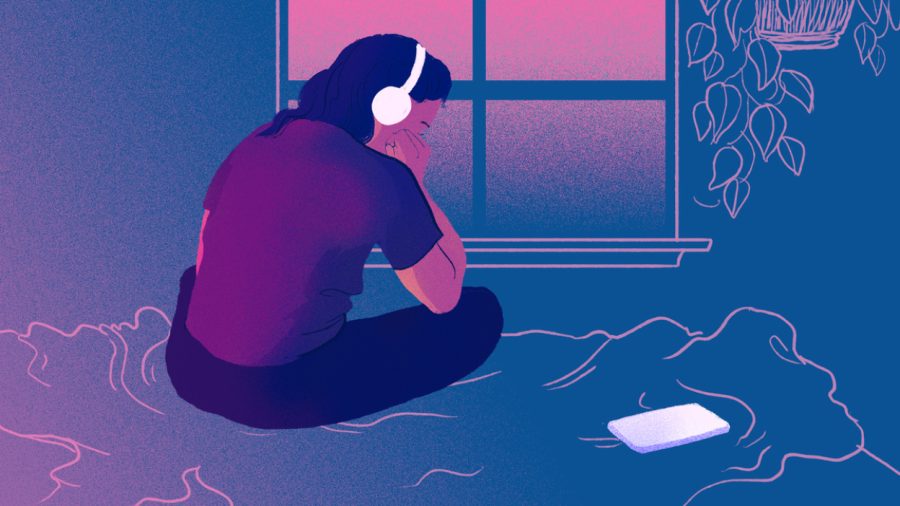How to relieve academic stress
February 20, 2022
With midterms finishing off the first semester, many students feel relieved: relieved that the first half of the year is officially over, that you have done all you could do, that June is not too far away. However, this relief is short-lived with the dawning of the second semester and the return of high expectations and seemingly endless assignments. We fall back into old habits, such as excessive technology usage and procrastination. However, this pattern does not have to stick. Here is a guide to relieving academic stress.
How to get started
Truly, the only way to conquer academic stress is to conquer what is causing that stress, or at least begin the assignment. It can be incredibly difficult to overcome the exhilaration one experiences while scrolling through their phone after a tiring school day. Because it’s often difficult to transition from mindless activities to writing five pages of a complicated essay, it helps to complete a small, easy task before attempting the larger one. Often, when in this exact situation, I will take out the trash or straighten up my room, giving me more motivation and energy to start. Even when I get the energy to sit up at my desk, I find it difficult to stay focused when I am alone in my room because I can become distracted so easily. I find it helpful to ask one of my family members to sit with me, maybe working on their computer or reading while I complete work. This makes it less likely for me to stray from the task. An alternative to this could be Facetiming someone while completing work, so both of you can stay on task. In addition, it can be almost impossible to stay focused with a scattered and anxious mindset. I will often remedy this by doing a five-minute meditation for anxiety on YouTube before I start or when I find myself becoming stressed during a difficult subject. The difference in how I feel before and after the meditation is dramatic. Meditation is a great way to put your mind at ease.
Atmosphere
It is important to determine which spaces you study best in, whether it be a particular room in your house or the school library. It’s also a good idea to figure out what time of day you are most productive. Additionally, experiment with different types of sounds while studying, as it can be one of the most important ways to retain focus. Classical music often works, as well as lo-fi music or any “color of noise” in the noise-cancelling family. You may decide that it is best to work without sound of any sort. Lighting is another factor that contributes to one’s level of focus. It’s usually better to work with at least some sort of light if studying late at night, though I prefer a softer light compared to an overhead as it is less jarring. Conversely, some people find that changing their studying atmosphere frequently increases motivation as it reduces a feeling of sameness and makes studying more exciting.
During breaks
Taking breaks is a necessary part of any stressful project, though taking them strategically to avoid straying off-task is key. I like to set a specific task to do and then after completing it, take a break. During the break, it’s a good idea to get up from your seat, stretch, and grab a snack or something to drink. You can sometimes become lonely when studying on your own, so it can be helpful to reconnect with the outside world, like talking to a friend. Being outside is another option for spending a break, whether it be taking a walk, running, or sitting outside in the sun.
Mindset
Changing your mindset towards studying and academics is what one must do to ward off academic stress consistently. It’s important to ask for help if needed, whether it be from teachers, family, or friends, because changing these habits can be a daunting task. Reach out, and they will help you adjust. Also, while it is admirable to be intent on improving yourself, be realistic. Understand that progress does not occur in a linear fashion, or as quickly as one would hope. But if you make consistent effort, you will slowly be able to change. Finally, make sure to regularly do something completely outside of academics. Do something you’re interested in; remind yourself that you are more than your goals and how you measure up to them.


